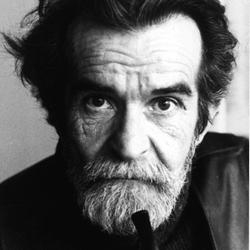Athol Fugard, the South African playwright "whose portrayals of intimate relationships burdened by oppressive racial separatism exposed the cruel psychological torment of apartheid to an international audience," died March 8, the New York Times reported. He was 92.
 |
|
| Athol Fugard | |
Noting that over a long and productive career, Fugard "was both repelled and fueled by the bond he felt with his homeland," the Times wrote that for decades "he was considered subversive by the government; at times productions of his work, with their integrated casts, were considered illegal, and his co-workers in the theater were jailed. In 1967, after his early play The Blood Knot appeared on British television, his passport was revoked, so that for several years he could not leave the country."
Fugard spent many years abroad, including in the U.S., but could never leave South Africa for good. "I think I actually need the sustaining provocation of being in South Africa when I'm telling a South Africa story," he told the New Yorker in 1982.
Fugard's more than 30 plays were presented around the world, with six of them having appeared on Broadway. In 2011, he received a Tony Award for lifetime achievement.
His early works include Boesman and Lena (1968), followed by two plays created with the Black South African actors John Kani and Winston Ntshona: Sizwe Banzi Is Dead (1972) and The Island (1973). Kani and Ntshona won Tonys for their performances when the two plays were performed in repertory on Broadway in 1974.
In his autobiographical play "Master Harold"... and the Boys, Fugard examined the relationship between a teenage white boy and the two Black men who work for his mother in a tea shop. The Times noted that in 1982, Master Harold opened at the Yale Repertory Theater, the first of his plays to have its premiere outside South Africa. Directed by the playwright and starring Danny Glover, Zakes Mokae, and Lonny Price, it moved to Broadway for a run of nearly a year.
"There may be two or three living playwrights in the world who can write as well as Athol Fugard," Frank Rich wrote in the Times, "but I'm not sure any of them has written a recent play that can match Master Harold'... and the Boys."
In 1984, he published Notebooks 1960-1977, a collection of journal entries. He also wrote the novel Tsotsi, which would be published almost 20 years later and made into a 2005 movie that won an Oscar for best foreign language film.

